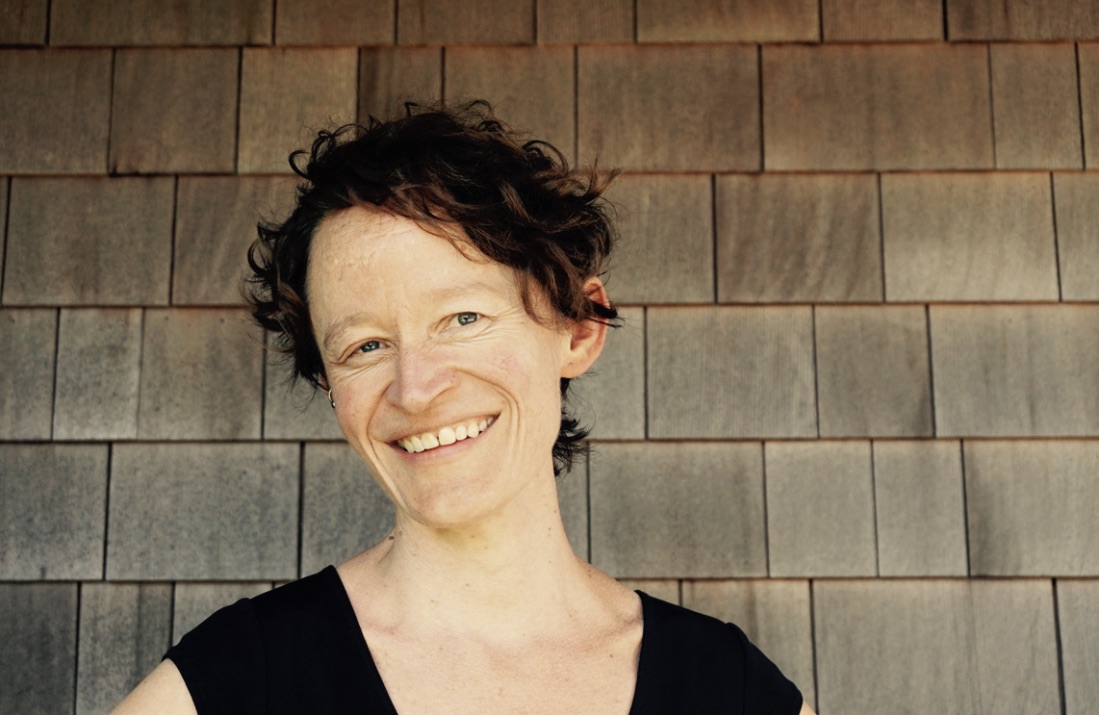Challenging the Arts community to think creatively and collaboratively
Donna McKinnon - 20 August 2020

Carrie Smith is used to change. With a personal and academic background that has taken her around the world and back again, the former Chair of the Department of Modern Languages and Cultural Studies brings a robust set of experiences to her new role as Vice-Dean of the Faculty of Arts.
With the COVID-19 pandemic and an unprecedented fiscal crisis facing the University of Alberta, Smith's unique insight into transformational change will help guide the Faculty through the challenges that lay ahead.
“The anxiety many people feel about that uncertainty is important to recognize and honour,” says Smith. “But these challenges must also prompt us as an Arts community to think creatively and collaboratively, to harness grassroots activism and entrepreneurial spirit in equal measures, and to put our people and programs at the forefront of our conversations. If we are able to do all of these things while also keeping our eye on our commitments to equity, diversity, and inclusion, we will be well-positioned to respond proactively to the coming changes.”
Hailing from Portland, Oregon, Smith completed undergraduate and graduate degrees, respectively, at Bard College in New York State and Washington University in St. Louis. For five years of her graduate studies in Germanic Languages and Literatures, she lived and worked in Berlin, followed by postgraduate work in Dublin.
Even with these international institutional experiences, Smith felt that her training was well suited to the North American context and so looked for opportunities to return, but not necessarily to the country of her birth.
“I was keen to move to a country that supports LGBTQIA2S rights at the national level, particularly when it comes to issues such as immigration and parental rights, and so Canada it was,” explains Smith. “The stars aligned and I joined the University of Alberta as Assistant Professor of German Studies in July 2008.”
When Smith gained enough linguistic knowledge to analyze a text in a language other than English—it was a powerful moment. Specifically, she says, the cultures of German-speaking countries offer a unique perspective on the challenges facing us more broadly—such as racism, police violence, xenophobia, the rise of the popular right, ecological collapse, and reconciling with the legacies of a violent past.
Interested in how political impulses resonate in, and are shaped by, cultural and creative products, Smith began to focus on the various ways in which digital culture has transformed feminist activism in its practice, products, politics, theory, and communities.
Her research has three general areas of concern: hashtag and social media-based feminist activism; feminist communities of practice (from hackerspaces to street spaces); and digitally-born or digitally-responsive creative outputs (video art, performance art, experimental film). More recently, she has focused on the complexities around coalition-building and collaboration among these areas. A second research strand looks specifically to institutional practices and feminist leadership, including rethinking German Studies through social justice and interdisciplinarity.
Appointed Chair of the Department of Modern Languages and Cultural Studies in 2017, Smith was deeply involved in the complete restructuring of the graduate program as well as the launch of a new BA (and the simultaneous closure of many others).
“I learned a great deal about the visionary and collaborative processes that go into such change – including hard conversations and passionate exchanges,” says Smith. “These experiences taught me how to bring many communities together around the same table, how important transparency is from start to finish, and what role criticism and questions play in producing the best possible end result.”
Smith says that being a departmental leader was “so rewarding” because it enabled her to support people that share a similar disciplinary vocabulary, but at the same time, she was equally interested in learning how the Faculty and the University works more broadly.
Serving as Chair of the inaugural Faculty of Arts Committee on Equity, Diversity, and Inclusion, Smith had the opportunity to meet with each individual departmental executives and many of the staff groups throughout the months of January and February.
“I gained insight into how our commonalities and differences across Arts intersect in generative ways,” says Smith. “I look forward to exploring those connections more deeply.”
Smith’s off-campus time is consumed by the activities of her young children, including soccer, swimming, and capoeira, with the remaining time taken up with board games and visits to playgrounds. In her ‘non-kid’ time, she does barre or takes walks with her wife, fascinated by the architecture across neighbourhoods and the role community leagues play in the city.
“There is no doubt that the challenges we as a university and Faculty are facing are daunting, says Smith. “There will be many whose lives will be impacted in different ways, but I am excited to be able to learn from and serve a broader cross-section of the Faculty in this new role.”